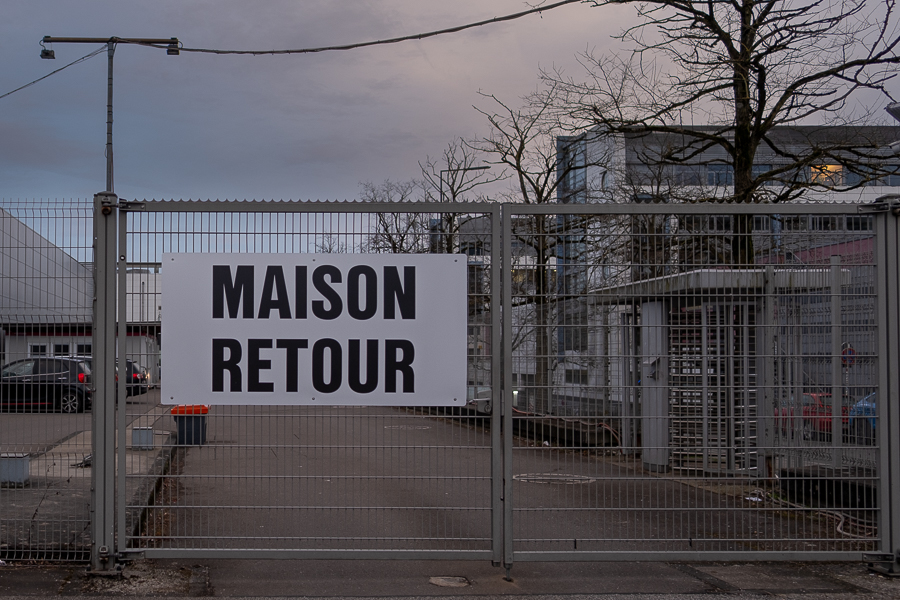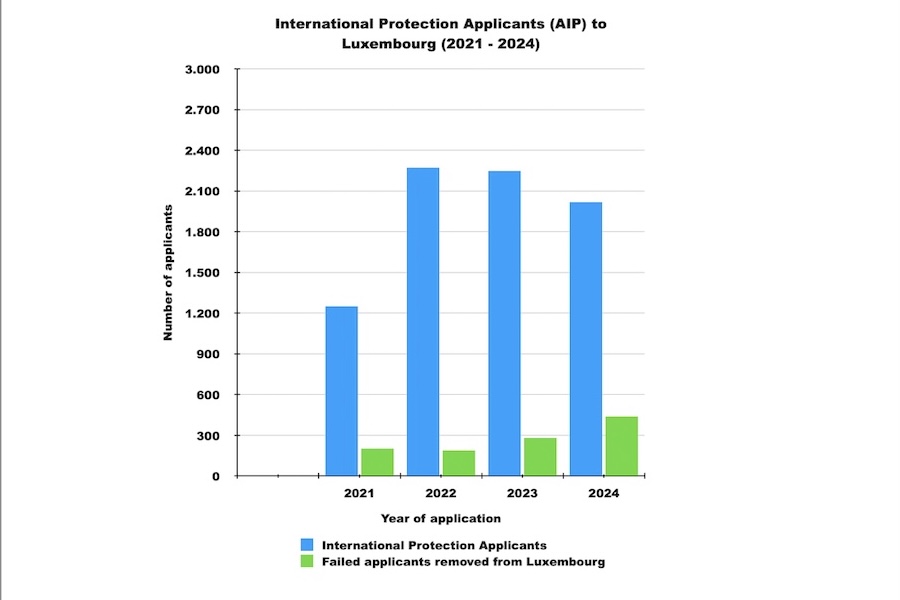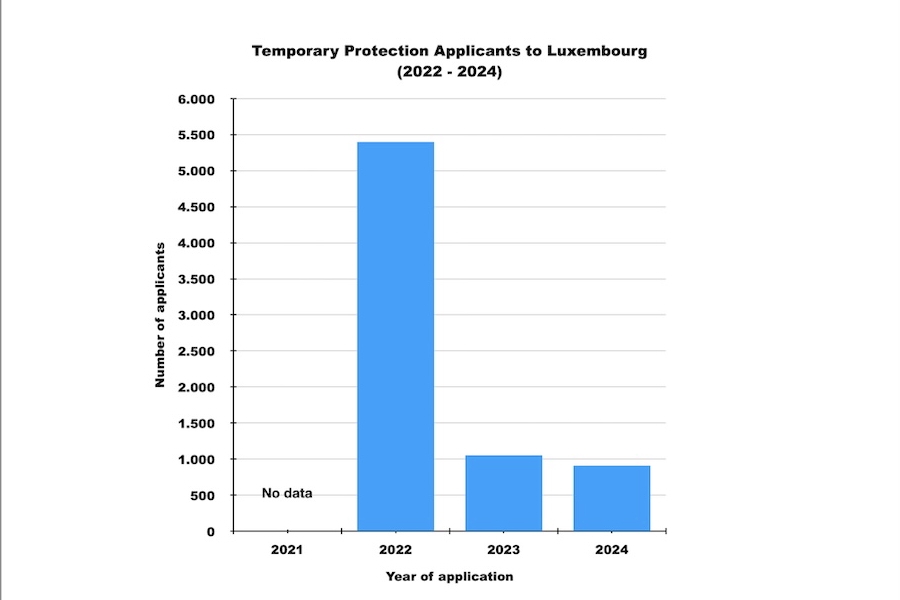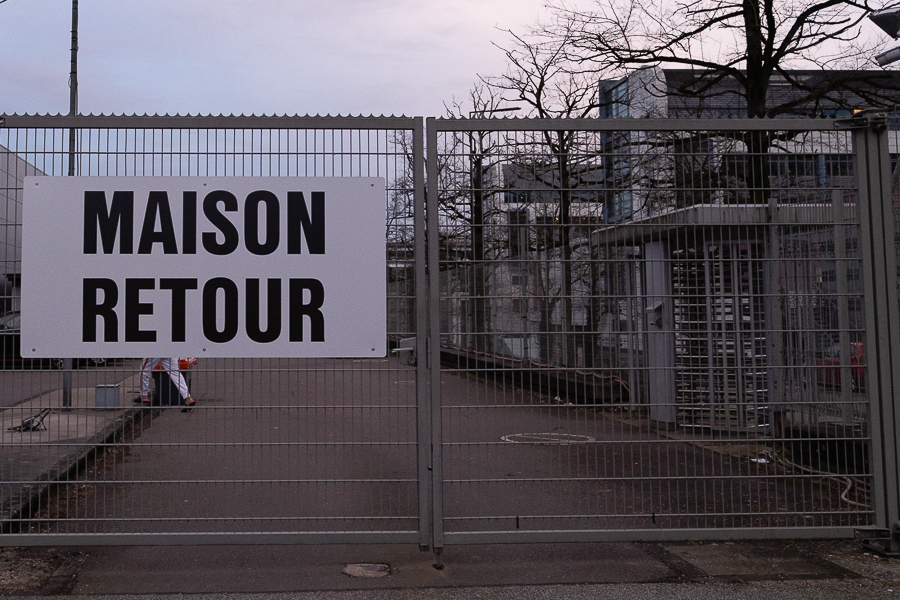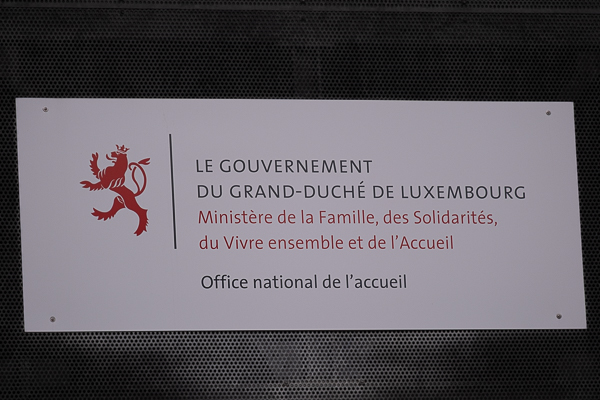 Credit: Ali Sahib, Chronicle.lu
Credit: Ali Sahib, Chronicle.lu
Immigrants, refugees, asylum seekers and migrants are all terms that we hear being discussed and analysed with greater frequency in the media.
Immigration issues are taking centre stage in many jurisdictions at the moment with increasing negativity towards those fleeing situations that many of us can only imagine. The rise of the far-right movement in many European countries has caused fear to non-nationals. Germany recently announced a further six month extension of the country's border controls with EU neighbours, thus limiting the free movement that came with the adoption of the Schengen agreement in 1985. US President Donald Trump has vowed to implement a hardline stance on immigrants in the USA. The world is becoming more hostile to those who seek refuge elsewhere.
Luxembourg has a high proportion of immigrants (47.4% of those living in the Grand Duchy are foreign nationals, i.e. without dual Luxembourgish nationality). Not all cases are considered equal. Many professional workers in the Grand Duchy come as economic migrants, seeking to better their lives professionally and financially and are supported in doing so. EU citizens have their pick of countries to call home, while professionals from outside the EU can secure visas allowing them to stay and work in the country. A recent change in legislation now gives family members of these "third-country nationals" the right to also work in Luxembourg, without the need to apply for a work permit.
However, the reality is very different for many others who also arrive in Luxembourg with dreams and hopes for a better life. Those who do not have an automatic right to live and work in the Grand Duchy must follow certain steps in order to stay. Luxembourg ranks fifth in Europe regarding the number of international protection (asylum seeker) applicants it receives per capita.
What does the different terminology actually mean?
The UN Refugee Agency (UNHCR) defines a refugee as someone who has been forced to flee their country because of persecution, war or violence. To seek sanctuary in another country, a refugee must apply for asylum, thereby becoming an asylum seeker.
Subsidiary protection status can be granted to people who, although seeking refuge, do not fall in to the above category. Although they do not meet the criteria for asylum, they are allowed stay in the country as they run the risk of serious harm (e.g. death penalty/torture, among others) if they were to return to their country of origin. The term "migrant" does not have an international legal definition. However, it is commonly understood to refer to someone who has chosen to leave their home to start a new life in another country. Migrants can freely return to their native country, a privilege denied to those seeking asylum or subsidiary protection. The UNHCR advises that people who are likely to be asylum-seekers or refugees should not be referred to as migrants. To do so can undermine the legal protections afforded to refugees under international law.
Luxembourg recognises two categories of international protection status: refugee status and subsidiary protection status. Applicants for both are known as International Protection Applicants (AIPs). In addition to AIP, Luxembourg also recognises temporary protection status, granted in the event of a large amount of people having to flee their country as a result of an emergency. The vast majority of beneficiaries of temporary protection (BTP) in Luxembourg come from Ukraine. (See below for further details on BTP).
What happens when someone arrives in Luxembourg seeking international protection under refugee or subsidiary protection status?
In Luxembourg, the Department for Refugees at the General Department of Immigration of the Ministry of Home Affairs is responsible for registering, processing and ruling on applications for international protection (AIP).
On arrival in Luxembourg, one can submit an application for international protection in person to: the Ministry of Home Affairs (General Department of Immigration - Department for refugees); the control service (Service de contrôle) at Luxembourg Airport; the Grand-Ducal Police; the detention centre or state prison where one has been placed.
Once an application has been submitted, the person concerned must then register in person with the Department for Refugees. They are then typically issued with a certificate, known as the papier rose (pink paper) within a few days of submitting the application. This paper, which must be renewed in person every month, conveys the right to stay in Luxembourg while their application for protection is being processed, but does not allow for travel outside Luxembourg. Applicants are not allowed to work during this stage of the process.
A National Reception Office (Office National de l'Accueil - ONA) social worker is assigned to each applicant to inform them of the different types of assistance of which they can avail. ONA, under the remit of the Ministry of Family Affairs, Solidarity, Living Together and Refugees, organises and manages temporary accommodation (reception centres) reserved for AIPs. According to the ministry, in December 2024 there were 8,200 beds available in 73 ONA reception centres throughout the country. This included five new reception centres that opened their doors in 2024. The Migrants and Refugees Service of the Luxembourg Red Cross and Hëllef um Terrain (HUT) also work closely with ONA to provide support and guidance to AIPs, as well as overseeing reception centres and accommodation facilities. ONA reception centres cater for those awaiting a decision on their status. Those granted international protection status are expected to secure accommodation outside of ONA centres, while those refused are housed in a Maison de Retour (return home) until they leave the country. In December 2024, the ministry reported that the occupancy rate in ONA centres was 97%. This is influenced by people, recently granted asylum, having difficulties securing accommodation outside of ONA centres, due to Luxembourg's current housing crisis. A third of ONA beds are reported to be occupied by those who have already been granted international protection, the majority of whom remain at the centre more than a year after obtaining their status. As a result, the government has established a working group to review and remedy this situation.
Following a process in which in-depth interviews are conducted, identities verified and criminal backgrounds checked, the General Department of Immigration-Department for Refugees will decide if the applicant is eligible or not for international protection or subsidiary protection status. Those eligible are known as beneficiaries of international protection (BPI) and receive a five-year residence permit, which confers the same rights as Luxembourg citizens regarding social security, accommodation, education and health care benefits. They are free to travel both inside and outside Luxembourg but risk losing their international protection status should they return to their country of origin. Most importantly, they have the right to seek and gain employment. Luxembourg granted 1,018 international protection cases in 2024 (out of 2,018 applications) - an increase of 6% compared to the previous year.
Failed applications and the right to appeal
All AIPs whose request is refused have the right to appeal the decision but, if this is unsuccessful, the pink paper (certificate) is cancelled and the rejected asylum seeker is obliged to return to their country of origin (or original EU country for those refused under the Dublin III regulation). They can no longer avail of ONA's accommodation facilities.
The Dublin III Regulation determines which EU country is responsible for considering an application for protection. AIPs can only have their application considered in the first EU country in which they arrive. Applicants who originally arrived in an EU country other than Luxembourg will be refused international protection in Luxembourg and will have to return to the original country to process their application.
In September 2024, the first Maison de Retour (return home), to accommodate failed applicants was set up in Luxembourg-Kirchberg. 170 people can be accommodated in the Maison de Retour. Residents receive advice, as well as social, psychological and financial support. According to the Ministry of Home Affairs, "a rejected asylum seeker is provided with accommodation, meals and laundry services as long as he/she is assigned to a Maison Retour. Moreover, an asylum seeker whose application falls under the Dublin III Regulation receives a monthly allowance of €31.22, credited to their Post debit card. In addition, a food assistance allocation is provided, as well as a clothing assistance allocation. The flight back to the country of origin or relevant EU country is paid by the [Luxembourg] government".
The Maison de Retour promotes voluntary return of failed asylum seekers and aims to make the return procedure more efficient. In 2024, 438 failed asylum seekers left the country. Of these, 308 were classed as voluntary returns (an increase of 86% compared to 2023) and 130 were classed as forced returns (an increase of 15% compared to 2023.)
Beneficiaries of temporary protection (BTP)
Temporary Protection Applicants fall under the remit of the Ministry of Family Affairs, Solidarity, Living Together and Reception of Refugees. The majority of temporary protection status applicants and beneficiaries in Luxembourg come from Ukraine. BTP status is available to anyone who was a resident of Ukraine before 24 February 2022 and who arrived in Luxembourg on or shortly after 24 February 2022. Those who meet the criteria for temporary protection are issued with a temporary protection certificate (blue paper) which confers the right to reside and work in the Grand Duchy as well as registration with the CNS for social security. The validity of this temporary protection document was recently extended to 4 March 2026; however, some Ukrainian BTPs have now applied for, and successfully received, residence in Luxembourg. BTPs may also apply for family reunification with family members who were granted protection in another EU country. They are entitled to accommodation in an ONA reception centre, if they do not have access to private accommodation. Following the arrival in Luxembourg of those fleeing the war in Ukraine, the Luxembourg government called on residents to take in refugees into their households. In Luxembourg, such households do not receive any state funding, unlike in other countries. In December 2024, 3,873 individuals in Luxembourg were reported to have temporary protection status.
According to the Ministry of Family Affairs, Solidarity, Living Together and Reception of Refugees, BTPs are entitled to the same material and financial assistance by ONA as applicants for international protection, provided they do not have sufficient means of subsistence. The amount of the financial allowance is set at €29 per person per month. In addition to this, the applicant also receives a food allowance of €226.27 per month, provided that the provision of meals is not provided by the ONA, as well as a hygiene allowance of €45 per month. This assistance is supplemented by other grants that cover accommodation costs, clothing costs, "costs inherent to specific nutritional needs", the needs of newborn children, childcare and school and educational materials, as well as medical expenses.
Conclusion
Are countries ethically obliged to help those in need? Does embracing and welcoming diversity lead to a more opened-minded, tolerant society or, as some would argue, does it lead to negative outcomes? As wars and disaccord continue throughout the world, the subject of refugee integration and acceptance is one that will continue to be prominent in political dialogue and media circles for some time to come. Here in Luxembourg, the system may not be perfect, but it is extensive - certainly for a small country. It is also complex, with two separate ministries involved: the Ministry of Family Affairs, Solidarity, Living Together and Reception of Refugees, and the Ministry of Home Affairs, plus the various support organisations too.

